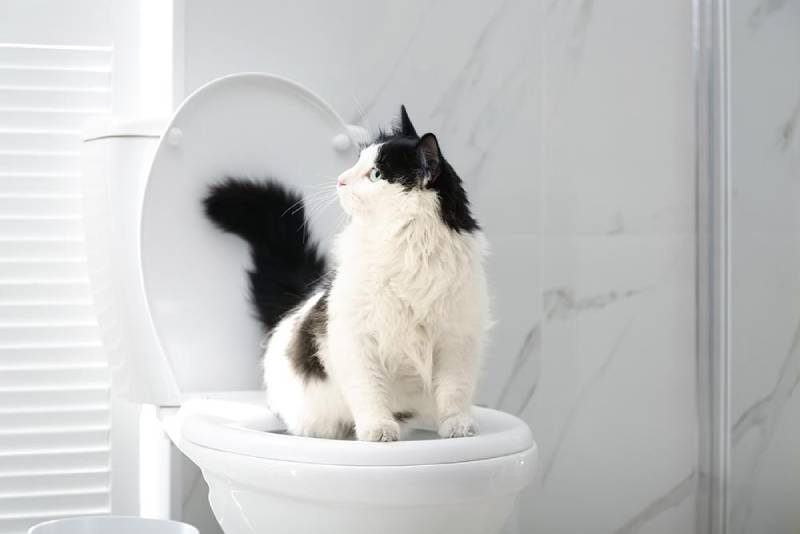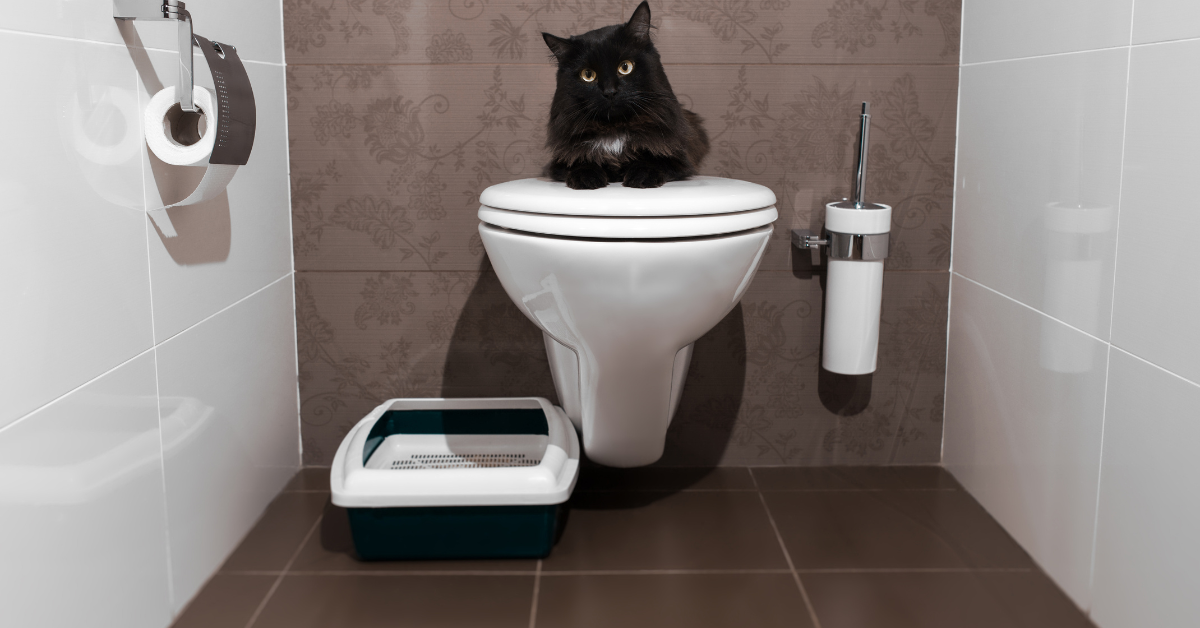Reasons Flushing Cat Poop Down Your Toilet Isn't a Good Idea - Advice for Proper Handling
Reasons Flushing Cat Poop Down Your Toilet Isn't a Good Idea - Advice for Proper Handling
Blog Article
We've unearthed this great article relating to Don’t flush cat feces down the toilet directly below on the internet and think it made good sense to relate it with you on my blog.

Intro
As cat owners, it's vital to be mindful of just how we get rid of our feline close friends' waste. While it might seem convenient to flush cat poop down the commode, this practice can have harmful effects for both the atmosphere and human health.
Alternatives to Flushing
Fortunately, there are much safer and much more liable methods to throw away pet cat poop. Think about the following alternatives:
1. Scoop and Dispose in Trash
One of the most common method of taking care of cat poop is to scoop it into an eco-friendly bag and toss it in the garbage. Make sure to make use of a committed clutter scoop and dispose of the waste quickly.
2. Usage Biodegradable Litter
Select naturally degradable cat trash made from products such as corn or wheat. These litters are eco-friendly and can be safely taken care of in the trash.
3. Bury in the Yard
If you have a lawn, take into consideration burying feline waste in an assigned location far from veggie yards and water resources. Be sure to dig deep enough to avoid contamination of groundwater.
4. Set Up a Pet Waste Disposal System
Purchase a family pet garbage disposal system especially created for pet cat waste. These systems make use of enzymes to break down the waste, minimizing smell and environmental impact.
Health Risks
Along with ecological worries, flushing cat waste can additionally present health and wellness risks to human beings. Feline feces may contain Toxoplasma gondii, a parasite that can trigger toxoplasmosis-- a possibly extreme disease, especially for expecting females and people with damaged immune systems.
Ecological Impact
Purging feline poop introduces harmful microorganisms and parasites into the water system, positioning a significant danger to aquatic ecological communities. These contaminants can adversely influence aquatic life and compromise water high quality.
Verdict
Responsible family pet possession prolongs beyond supplying food and shelter-- it likewise entails proper waste administration. By avoiding flushing cat poop down the commode and selecting alternate disposal methods, we can lessen our environmental footprint and protect human wellness.
Why You Should Never Flush Cat Poop Down the Toilet
A rose by any other name might smell as sweet, but not all poop is created equal. Toilets, and our sewage systems, are designed for human excrement, not animal waste. It might seem like it couldn’t hurt to toss cat feces into the loo, but it’s not a good idea to flush cat poop in the toilet.
First and foremost, assuming your cat uses a litter box, any waste is going to have litter on it. And even the smallest amount of litter can wreak havoc on plumbing.
Over time, small amounts build up, filling up your septic system. Most litter sold today is clumping; it is made from a type of clay that hardens when it gets wet. Ever tried to scrape old clumps from the bottom of a litter box? You know just how cement-hard it can get!
Now imagine just a small clump of that stuck in your pipes. A simple de-clogger like Drano isn’t going to cut it. And that means it’s going to cost you big time to fix it.
Parasitic Contamination
Believe it or not, your healthy kitty may be harboring a nasty parasite. Only cats excrete Toxoplasma in their feces. Yet it rarely causes serious health issues in the cats that are infected. Most people will be fine too if infected. Only pregnant women and people with compromised immune systems are at risk. (If you’ve ever heard how women who are expecting are excused from litter cleaning duty, Toxoplasma is why.)
But other animals may have a problem if infected with the parasite. And human water treatment systems aren’t designed to handle it. As a result, the systems don’t remove the parasite before discharging wastewater into local waterways. Fish, shellfish, and other marine life — otters in particular — are susceptible to toxoplasma. If exposed, most will end up with brain damage and many will die.
Depending on the species of fish, they may end up on someone’s fish hook and, ultimately on someone’s dinner plate. If that someone has a chronic illness, they’re at risk.
Skip the Toilet Training
We know there are folks out there who like to toilet train their cats. And we give them props, it takes a lot of work. But thanks to the toxoplasma, it’s not a good idea.

We had been made aware of that article about Don’t flush cat feces down the toilet through a good friend on another web page. Liked our blog? Please share it. Let other people find it. Bless you for your time. Come back soon.
Call Today Report this page